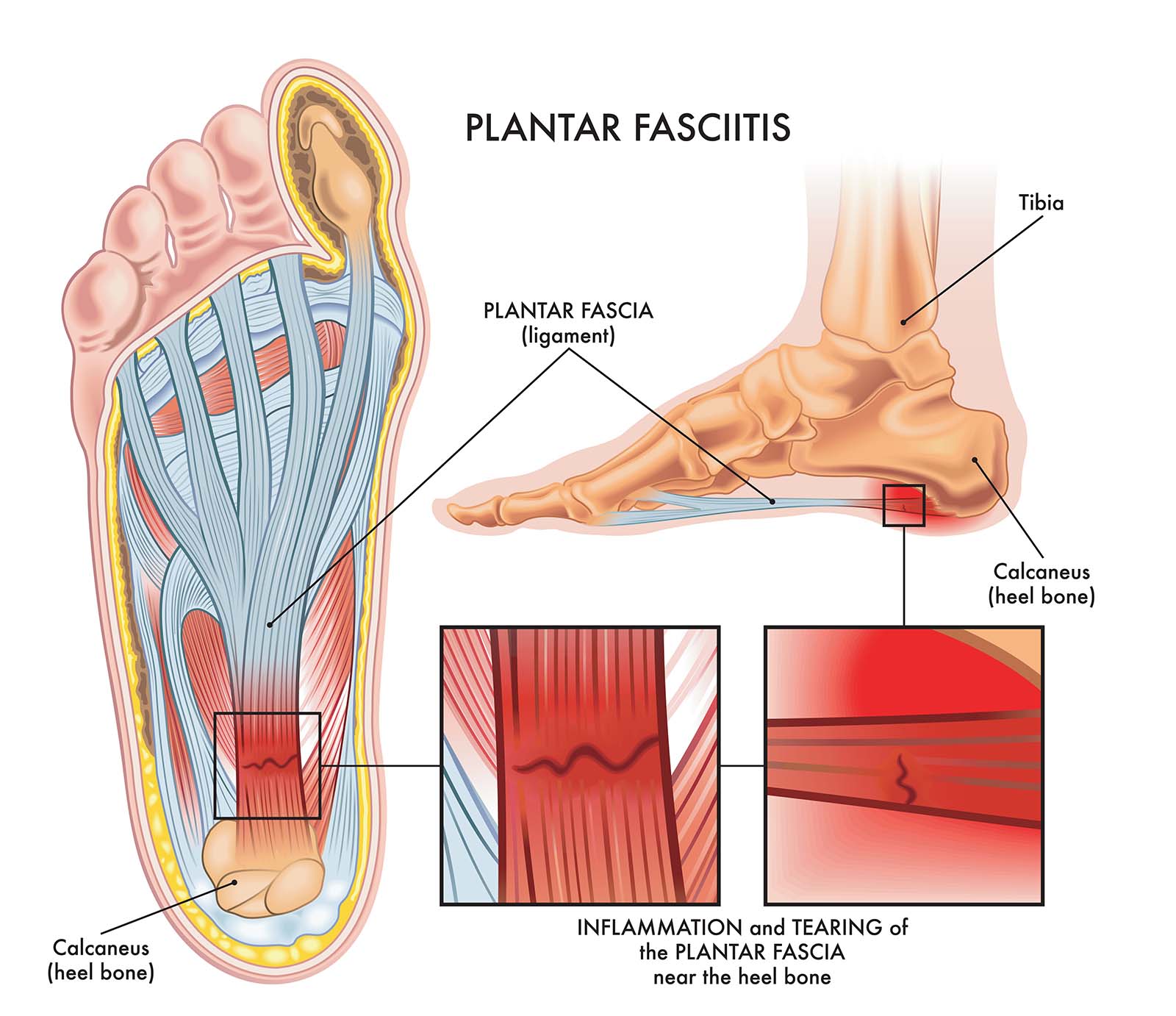What is plantar fasciitis?
Plantar fasciitis occurs when the plantar fascia, a crucial band of tissue in your foot, becomes inflamed. This strong connective tissue runs from your heel bone across your arch to your toes, acting as your foot’s natural shock absorber. When excessive stress causes this tissue to develop small tears, inflammation follows, leading to the characteristic heel pain that affects millions of Americans each year.
Did you know…
Your risk of developing plantar fasciitis increases with certain activities and lifestyle factors. Athletes, particularly runners and those participating in high-impact sports, frequently experience this condition. However, you don’t need to be an athlete to develop plantar fasciitis. Factors such as prolonged standing, excess weight, or wearing shoes with poor arch support can all contribute to this painful condition.
Recognizing Plantar Fasciitis Symptoms
Distinctive Pain Patterns
- Feels worst after periods of rest or inactivity
- Gradually improves with movement but may worsen after extended activity
- Creates discomfort when climbing stairs or standing on tiptoes
- Can affect one or both feet
Advanced Diagnostic Approach at SCMSC
Comprehensive Treatment Solutions
Conservative Care Options
We begin with conservative treatments that often provide significant relief. These may include specialized stretching protocols, custom orthotics designed for your specific foot structure, and targeted physical therapy. For immediate pain management, we might recommend specific anti-inflammatory medications or advanced injection therapies.
Advanced Treatment Methods
When conservative approaches aren’t providing adequate relief, we offer cutting-edge treatments such as:
- Advanced therapeutic ultrasound
- State-of-the-art shockwave therapy
- Platelet-rich plasma injections
- Minimally invasive procedures when necessary
Prevention and Long-Term Management
Lifestyle Modifications
Understanding how your daily activities affect your feet allows us to recommend specific changes that can prevent future problems. This might include guidance on proper footwear, activity modifications, and strengthening exercises tailored to your lifestyle.
Why Choose SCMSC for Plantar Fasciitis Treatment?
Dr. Nazarian brings extensive experience in treating plantar fasciitis, combining traditional proven methods with innovative techniques. Our comprehensive approach focuses not just on relieving your pain, but on addressing the root causes of your condition to prevent future occurrences.





